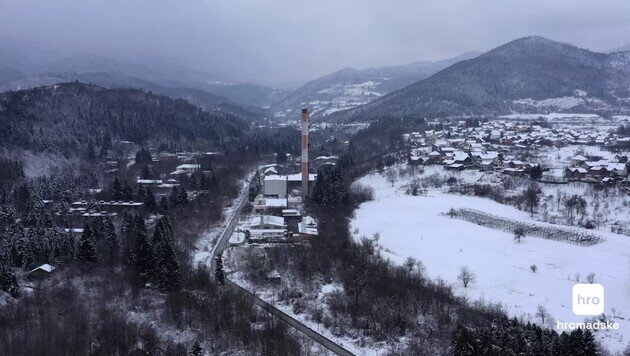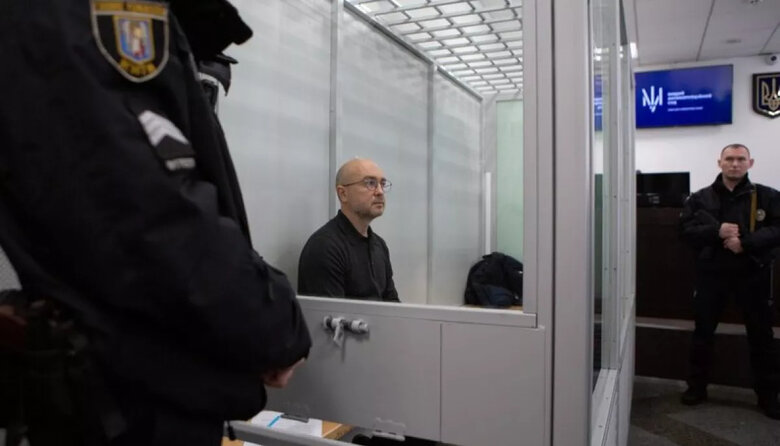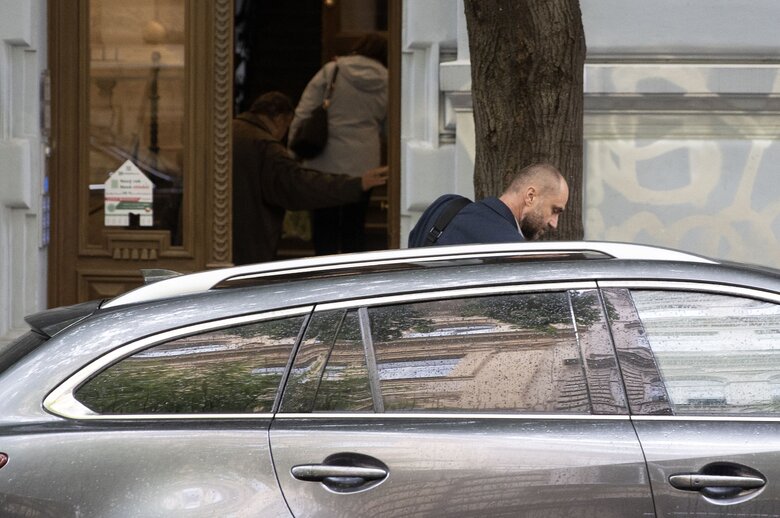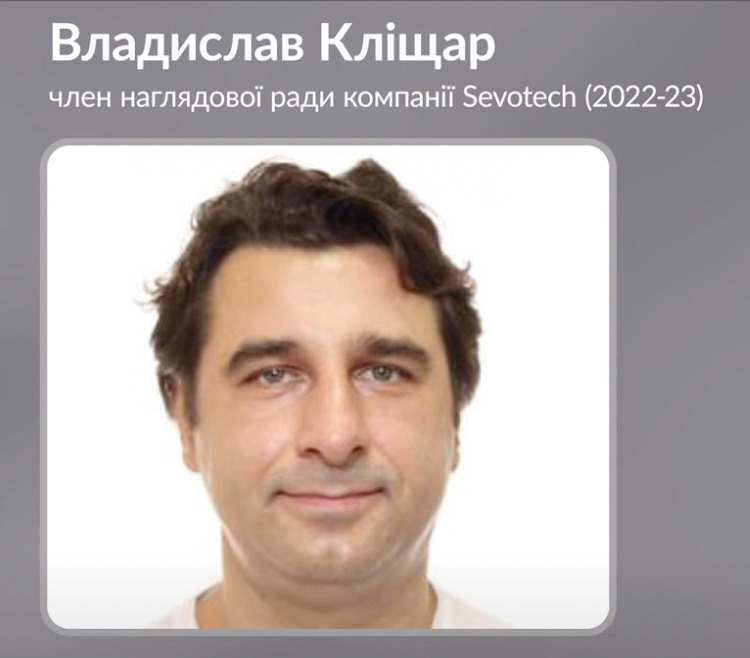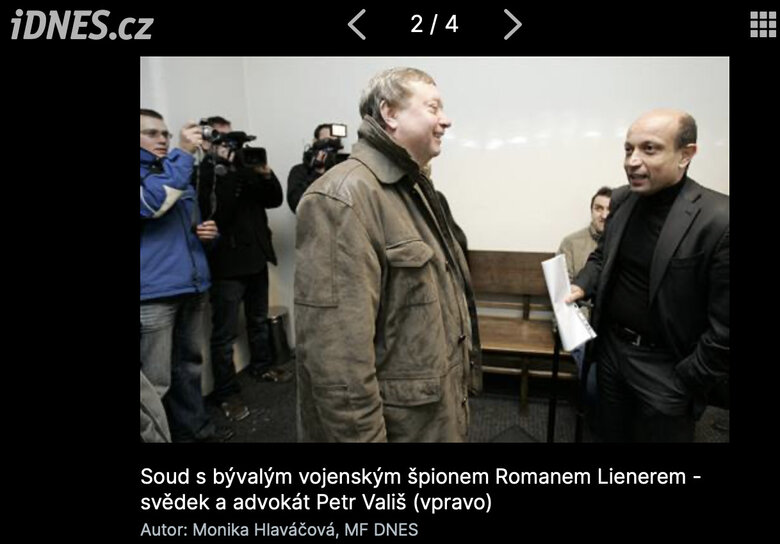Mysterious death in Czech Republic and Lviv Arsenal case
Recently, the chairman of the board of directors of the Podnikatelská družstevní záložna credit union, Robert Zelenka, was found dead in Prague. This credit union was involved in the case of the contract for the supply of 100,000 mines between the Ukrainian Ministry of Defense and the Lviv Arsenal company.
Zelenka's death once again draws attention to the strange events that took place in the Czech Republic around the scandalous contract.
Robert Zelenka's body was found on 8 June. According to iDnes, the day before, the police had put the man on the wanted list: in the morning, he had taken his daughter to school and disappeared.
"Given that the missing person has recently been experiencing psychological problems and anxiety, it is possible that his life is in danger," the police said on 7 June, according to NV.
The journalists note that initially, the police report stated that the missing man "probably committed suicide". However, the statement was later edited "out of respect for the family of the deceased", and the reference to suicide was removed.
Zelenka's death forces us to return once again to the history of the Lviv Arsenal, which has not been properly investigated in Ukraine.
Let me remind you that on 10 October 2022, Lviv Arsenal signed a contract with the Ministry of Defence to supply 120 mm and 82 mm mortar rounds.
The company received an advance payment of 97 percent against the obligation to supply the weapons to Ukraine in two months. The money was paid, sent through several companies - first the Slovak company Sevotech, then the Croatian company WDG Promet - but the weapons were not supplied. Instead, it turned out that the Croatian company had bought an abandoned powder factory in Bosnia for money identical to that received from the Ministry of Defense. At the same time, almost 4 million euros were withdrawn to cash during the first transactions.
Photo © hromadske.tv
In March 2023, the Ministry of Defense of Ukraine filed a lawsuit to the commercial court to recover from Lviv Arsenal in favor of UAH 1,340,465,698 in advance payment. In the winter of 2024, this money was sued. And the then-head of the Defense Ministry's Military-Technical Policy Department, Oleksandr Liiev, was arrested. However, then strange things began to happen with the case. Despite the fact that the investigation was conducted by the National Police, the High Anti-Corruption Court was asked for permission to arrest. Then the case itself was transferred to the NABU. The Anti-Corruption Bureau read it and returned it to the National Police. Liev is currently at large.
The Lviv Arsenal case was forgotten. And then there was the death in the Czech Republic.
What is the role of the Podnikatelská družstevní záložna credit union in this scam?
After failing to supply Ukraine with 100,000 mines, WDG Promet claimed in the press that they had been robbed by their own bank operator, Kamil Bakhbukh. From the same credit union.
Bakhbukh, on the other hand, accused WDG Promet of using Ukrainian money to buy an abandoned gunpowder factory for the owners of WDG Promet, the Croatian gunsmiths Zubaks.
In the Hromadske investigation, Bakhbukh explicitly states that there was no money in the accounts of WDG Promet until the money was transferred by the Ministry of Defence. He claims that the company's owners, the Zubaks family, have been looking to buy the Vitezit gunpowder plant in Bosnia since 2021. And they did it with Ukrainian money.
Instead, one of the defendants in the case, a representative of Sevotech's supervisory board, Oleksandr Khoroshaiev, said that Bakhbukh was a long-time partner of the owners of the Zubak`s Croatian company, and "WDG Promet became hostage to the fraudulent actions of the top management of Podnikatelska druzstevni zalozna. 5.372.000 million euros, which were illegally seized by fraudsters of a Czech bank".
The same Khoroshaiev was one of the first to send Ukrainian journalists a message that Czech Prime Minister Petr Fiala was involved in Podnikatelska druzstevni zalozna.
In January of this year, Seznam Zprávy revealed that Czech Prime Minister Fiala had concealed from the public a portion of his savings, amounting to approximately one million crowns, which he had deposited in a union account.
The publication found that 140 million kroons had disappeared from the union.
"We are investigating the circumstances surrounding PDZ, and the Ukraine case was the impetus for this," a source from the Czech National Centre for Combating Organised Crime confirmed to the newspaper.
In fact, the scandals surrounding the Czech prime minister and Lviv Arsenal forced Robert Zelenka to give an interview.
He confirmed that Fiala had a deposit in the credit union, but did not consider it a "mortal sin" to not report the 1 million kroons. He said it was an "unfortunate oversight".
Regarding the Ukrainian case, Zelenka said: "WDG presented us with a lot of documents and contracts that looked completely in order, and we had no reason to doubt their authenticity."
"Their business relationship appeared to be transparent until June 2023, although there were small indications that their suppliers might be delayed due to delays in the issuance of some licenses required for arms transfers. However, the moment we received the first relevant suspicion based on our own investigations in June 2023, which indicated that this could be fraud, we immediately did everything we could to prevent WDG from continuing to operate. But we could not determine in advance that it was a fraud, just as the Ukrainian side did not see it," assured the chairman of the credit union's board.
According to Zelenka, no charges have been brought against Podnikatelska družstevná plážná, "on the contrary, representatives of the Ukrainian side have repeatedly expressed their gratitude for the fact that our activities have helped to secure a significant part of the money in the accounts in the Balkans."
Zelenka, of course, did not admit that his company was involved in money laundering.
According to him, the materials about the union and the prime minister were more likely related to the intention of whistleblower Pavel Vurst to "come into possession of the enterprise".
"In connection with the arms fraud, for example, there is talk in Ukraine about the possible role of Russian intelligence services, whose goal was to damage Ukraine's reputation, present it as a corrupt country, reduce its willingness to receive external funding, and attack the clearly pro-Ukrainian Czech government," he added.
However, in fact, the activities of the union were of interest to Czech law enforcement agencies; in recent years, it was fined for its activities and faced the possibility of losing its license.
The Czech media refer to Zelenka as the formal leader of the union, while in reality, it was Kamil Bakhbukh, mentioned in Ukrainian history, who was in charge.
"As a lawyer by proxy, he represented other companies associated with the union or even acted as their owner (Galerie Gema, Gemacom, Distav construction, Wastech, Gozer Privatstiftung or Gozer Financial Services). There is still a suspicion that he was simply covering up for the real owners and following the instructions of his unofficial boss, Kamil Bakhbukh. Even Bakhbukh has not yet answered the question of what he knows about Zelenka's last days," Seznam Zprávy writes in a new article.
As the author of the article notes, Zelenka fall between two stools. As a lawyer, he worked with lawyer Stepanka Bakhbukh, the wife of Kamil Bakhbukh. He also had a relationship with another former owner of the union.
The first to report Zelenka's death was iDNES.cz.
"Unfortunately, the man was found without any signs of life," said Eva Kropáčová, a spokeswoman for the Prague police.
According to Seznam Zpráv, the police concluded that it was a suicide, which Kropáčová confirmed. "Other people's fault is excluded," the editorial office replied to the question.
However, the story may seem much more complicated.
The author should pay attention to the last paragraphs about Zelenka's death in the Czech edition.
Seznam Zprávy tried to talk to Robert Zelenka in person in April when an extraordinary meeting of PDZ members was held at the home of Prague lawyer Petr Vališ, where the possibility of liquidating the union was also to be discussed.
Before the meeting, Valish told the editor that "it was impossible to talk to Zelenka. Zelenka himself refused to be interviewed after the meeting. Through the window of his car, he made a dismissive gesture with his hand to show that he was not going to talk about anything. Then he left.
"The next membership meeting is scheduled to take place before the start of the holidays - on Friday, 28 June, in the early evening. The invitation, which has recently appeared on the pawnshop's website, is signed by the deceased chairman of the union of directors," the newspaper writes.
Well, it's time to meet lawyer Peter Walisz, who is a lawyer for spies and Russians. He is also associated with the defendants in the Lviv Arsenal case.
As Censor.NET previously wrote, almost simultaneously with the conclusion of the Lviv Arsenal contract, a certain Vladyslav Klishchar joined the supervisory board of one of the intermediaries in this deal, Sevotech.
This is a person who is part of the entourage of Andrii Hmyrin, a Yanukovych-era fiscal officer who was a member of President Zelenskyy's office in 2021.
Hmyryn is a defendant in the NABU case on embezzlement of public funds from Odesa Portside Plant and the United Mining and Chemical Company. The case also involves Klishchar's companies EPI Group s.r.o. and Belanto, to which UMCC sold ilmenite at a low price, which was then shipped to Russia or occupied Crimea at market prices.
However, Hmyryn managed to flee abroad before the announcement of suspicions, and Klishchar was not charged.
In a commentary to Hromadske, the businessman assured that he had never had anything to do with the Ministry of Defence's money. However, his arrival at Sevotech and his departure strangely coincide with the signing of a contract with Lviv Arsenal and the start of massive media coverage in 2023.
Klishchar has been living in the Czech Republic for a long time. He has several companies there, each more interesting than the last. Among them is a certain LEO INTERNATIONAL GRUPP, where Belanto's attorney Oleksandr Bezzubets and Oleksandr Beliaiev are partners.
Yes, this is the same Oleksandr Beliaiev, who is the brother-in-law of former SSU head Ivan Bakanov and a former business partner of Volodymyr Zelenskyy himself. A more than interesting and odious persona.
Another company is ILS INVESTMENT GROUP s.r.o. Klishchar has partners there - Beliaiev and Oleksandr Melnychuk.
You will not find the profiles of all these people on Facebook. The pages of their relatives have also been closed after the publication of the materials on Censor.NET.
You won't find them on Linkedln.
However, it seems that since the end of last year, someone has been creating alternative versions of their work biographies.
For example, in December 2023, an article about Klishchar, Beliaiev and Melnychuk was published on the blackboxosint website, which at that time had two articles. It stated that these individuals wanted to buy a stake in Parimatch from the founder Eduard Schwindlerman. As you know, sanctions were imposed on this company in March in Ukraine.
"They presented themselves to Parimatch employees as employees of the CIA and European intelligence services. At the same time, they were presented to Parimatch's shareholders as investors with connections to the governments of the United States, Europe and Ukraine. There is virtually no information about Oleksandr Melnychuk in the public domain, and an analysis of data from open state registers suggests that this person leads a very secretive lifestyle. Since 2015, there has been no information about Oleksandr Melnychuk's official employment in Ukraine, but according to some reports, he is introduced as an employee of the Defence Intelligence of Ukraine," the article says.
No comments from Parimatch have been published in the press since then, but businessmen familiar with the shareholders spoke of some "anxiety" in the company. As you know, since last year, Parimatch has been under sanctions in Ukraine because of its ties to Russia.
As it turned out, the same article was later reprinted on the French website Facta.media. It is unlikely that France was very interested in the fate of the Ukrainian gambling operator. But it is already as it stands.
It gets even more interesting - in January 2024, London insider and talk-finance.co.uk published similar materials titled Weapons, Money and SARN: How the Czech-American group embezzled Ukraine.
The materials begin as follows: "Recent journalistic investigations show that an organized criminal group may be operating in the EU, in particular in the Czech Republic and Slovakia, as well as in the United States - the group is involved in arms trafficking, court fraud and embezzlement of funds allocated for the needs of the Armed Forces."
London insider also tells about Beliaiev and Klishchar which was previously published in the Ukrainian media, but adds something new.
According to London Insider, according to a comprehensive study of commercial registers, Klishchar and partners are closely linked to the SARN group of companies operating in the Czech Republic and the United States.
The group includes the Czech company SARN Europe s.r.o. (a subsidiary of the US-based SARN ENERGY LLC), headed by Czech lawyer Petr Vališ.
This is the same lawyer who appointed the meeting of the credit union involved in the Lviv Arsenal case.
"Vališ specializes in financial law, assists a number of Czech legal entities, and defends spies and Russian businessmen in courts," the newspaper writes.
"In particular, Vališ was involved in the case of former Czech military intelligence officer Roman Liner (who worked in Belarus), who misappropriated about 189,000 CZK of the Ministry of Internal Affairs' funds. Vališ also protected a former influential Czech intelligence officer, Martin Uger`s interests, who was accused of fraud during the performance of his duties. The lawyer was also involved in the case against Russian oligarch Roman Popov," the article says.
This information about Vališ is indeed validated by the Czech media.
In Uger's case, Vališ is generally a second defendant.
Other news includes references to a company that was accused of illegal weapons possession in 2015. About 50,000 anti-tank grenade launchers and ammunition from the 1970s and 1980s were seized, according to media reports, which were outdated and modernized by Pyro-Technology. It was also represented by Vališ.
Information about the conflict between SARN and Czechoslovak Group A.S. can also be found in the media.
And while information about SARN is rather murky, Czechoslovak Group is the leader of the Czech arms market owned by Jaroslav Strnad. In fact, the little-known company wants to get a stake in the Czechoslovak Group's business.
Last year, the entire group had record sales of around 25 billion kronor, almost double the previous year's 14.4 billion.
All these fragmentary news items do not allow us to complete the puzzle, but it seems that most of the materials for solving the Lviv Arsenal scam are now in the Czech Republic. And that is where most of the people involved in the case lived. If they haven't fled yet.
Tetiana Nikolaienko, Censor.NET

